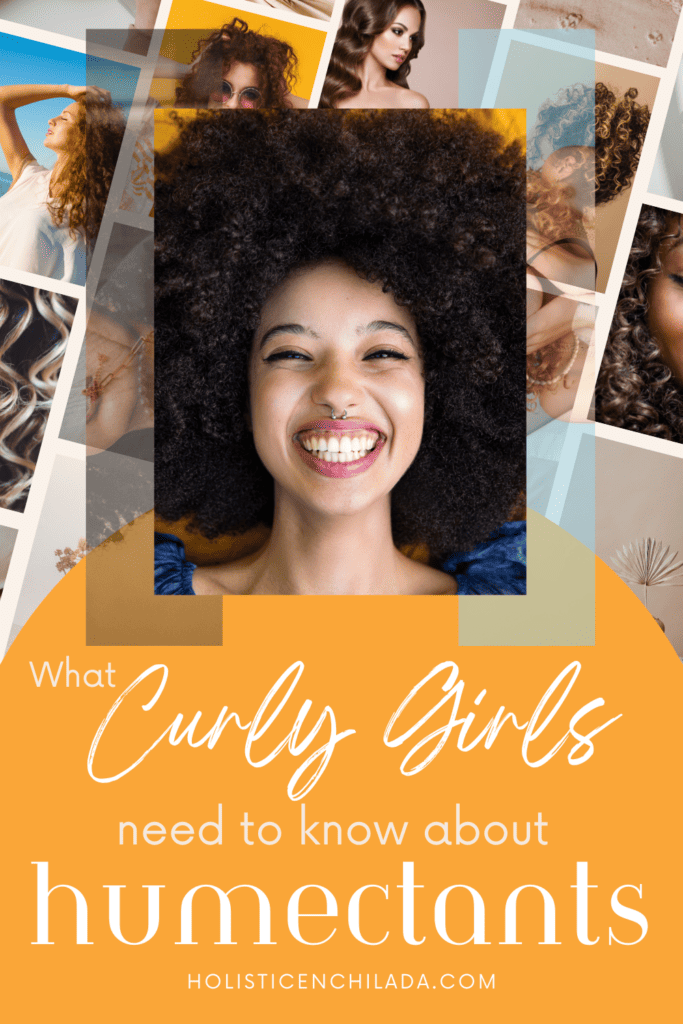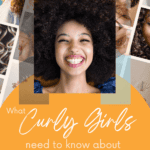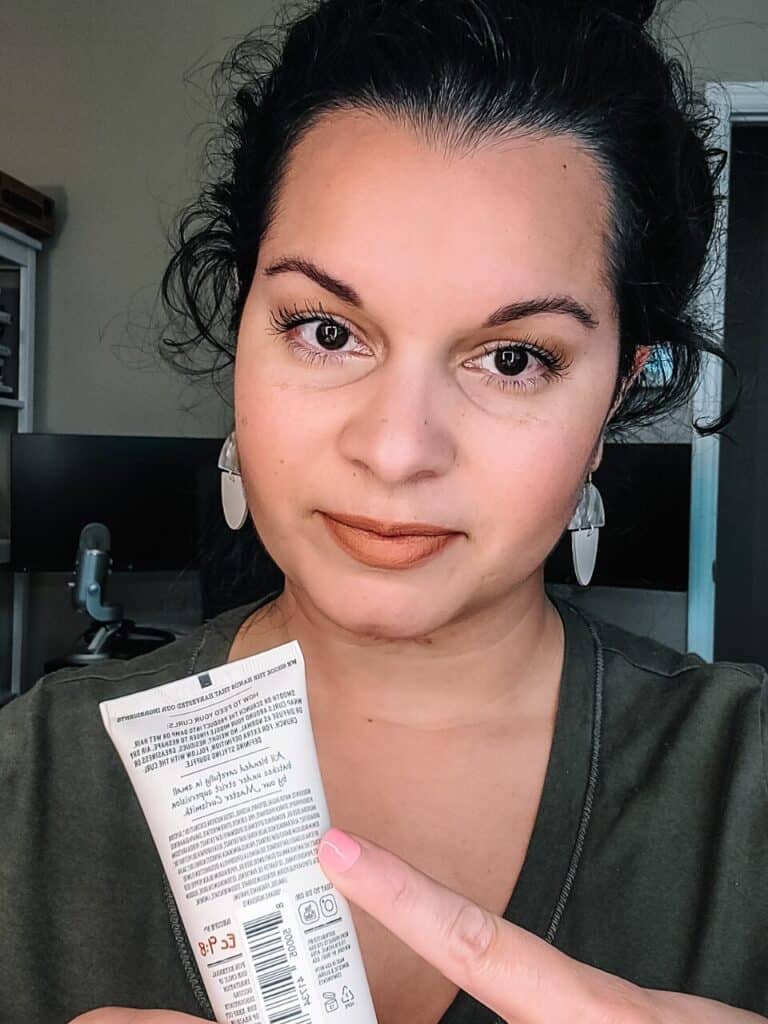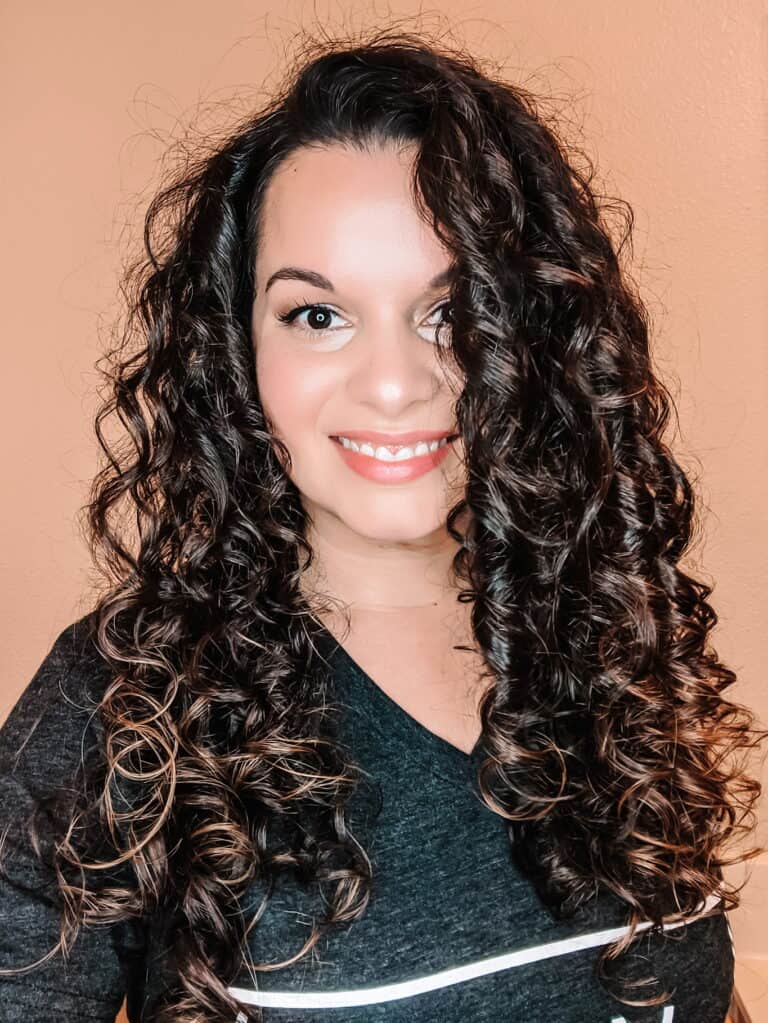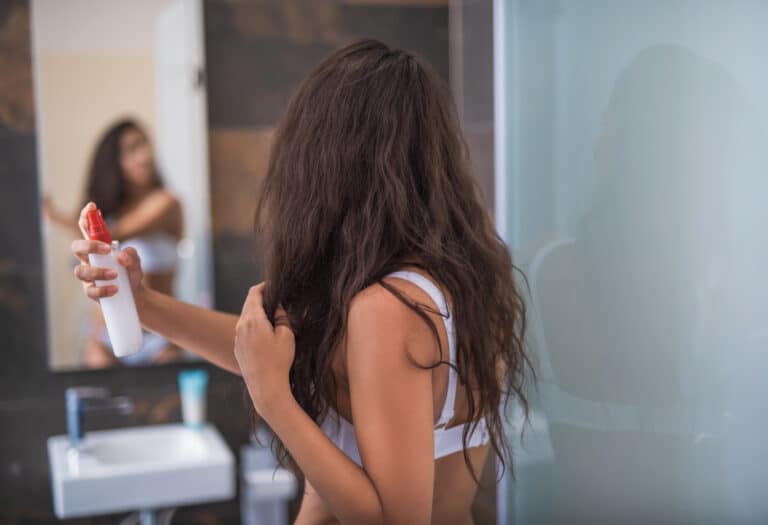What Curly Girls Need to Know About Humectants for Hair
This post may contain affiliate links, and I will earn a commission if you purchase through these links. Please read the disclosure policy for more details.
Ever wondered when is the right time to use humectants for hair? Or maybe you’re wondering what humectants are and what they do!
Humectants are a fantastic ingredient in hair care products that can nourish, moisturize and protect natural textured hair. They help keep your hair soft and hydrated, boost your curl definition, and keep frizz at bay. That’s got your attention, right?
In this ultimate guide to humectants for hair, we’ll explain more about what a humectant is, how they work, and why they’re so important for natural hair types. We’ll also tell you when it’s best not to use a humectant and what you should use instead.
What Are Humectants?
Humectants are a type of ingredient used in hair products that are designed to moisturize dry or damaged hair.
They are hydrophilic, which means that they attract water molecules. Humectants will pull moisture from their local environment, usually from the air or the products you apply to your hair. They then bind this moisture to the hair shaft, helping to hydrate your locks and reduce the risk of damage.
Humectant vs. Anti Humectant
Getting the moisture balance right can be tricky. You don’t want your locks to be dry and brittle, but too much moisture can lead to frizz or cause swelling that damages the hair fiber.
Instead of attracting water, anti-humectants coat the hair shaft and smooth the cuticle on the hair surface. This stops it from absorbing moisture from the atmosphere, and has the added bonus of making your hair shinier and slippier, so it’s easier to detangle.
But here’s a quick word of warning. Many anti-humectant products contain silicones, and while these make your hair soft and shiny, they can also cause a build up on your strands. This makes your hair feel heavy and dull and can even cause dryness by preventing your hair from absorbing moisture.
Using a clarifying shampoo regularly will remove the build-up of silicones. You could also try some other anti humectants:
- Plant-based butter like shea butter or mango butter
- Plant-based oils like olive oil, avocado oil or rapeseed oil
- Natural waxes
- Lanolin
- Petroleum jelly
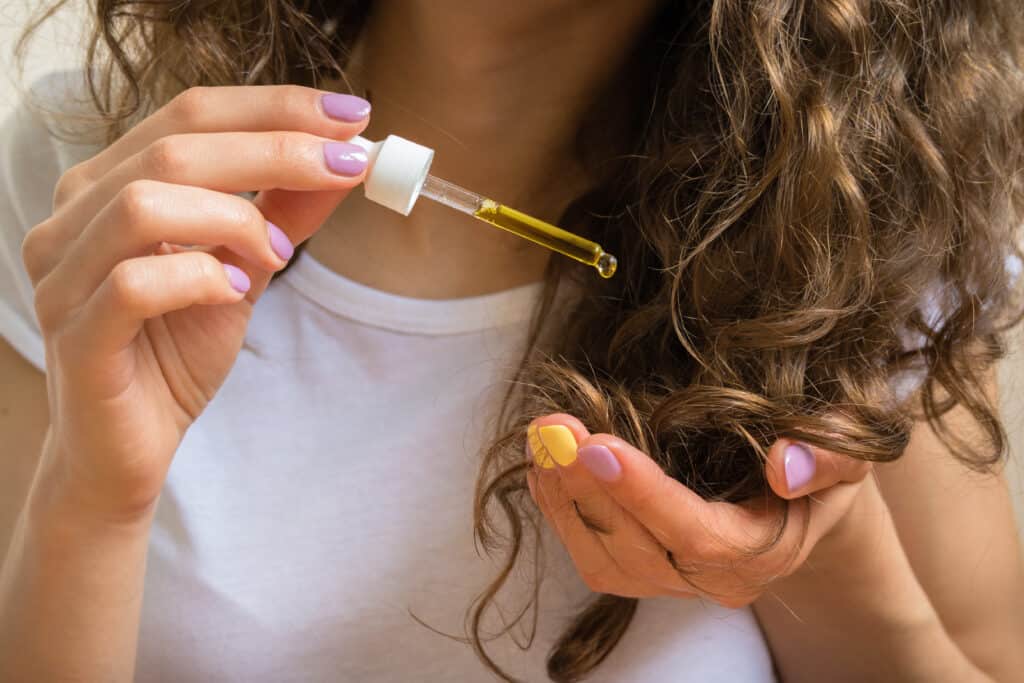
Humectants vs. Emollients
Anti-humectants are also known as emollients, and you’ll often find these in detangling and moisturizing products.
Popular natural emollients that you can add to your hair care routine include coconut oil, castor oil, argan oil, and shea butter.
How Humectants Work
Basically, a humectant works like a magnet, attracting water molecules from the air, the products you put on your hair, and sometimes even from inside the hair shaft.
When used appropriately, they moisturize your hair, boosting its elasticity and preventing it from becoming dry and damaged.
Absorption vs. Adsorption
Humectants work through a process known as adsorption. No, not absorption – that’s the process where a substance passes into a material and spreads throughout it so they can’t be separated.
Adsorption describes a different process when atoms and molecules are attracted to and adhere to a surface. The bonds that are formed are pretty weak, so the two substances can be easily separated.
Some humectants can adsorb several times their weight in moisture through hydrogen bonding, and this happens because of the polarity of atoms in the water.
Hydrogen Bonding and Polarity
Like a magnet, every atom contained in water molecules has a more positive charge at one end and a more negative charge at the other. This allows the atoms to link together, positive end to negative end.
Each water molecule has three atoms, two hydrogen and one oxygen, which are attracted to each other and form a bridge called a hydrogen bond. This triangular formation can be stacked into complex shapes, which are then attracted to the polar hydroxyl groups in hair care or styling products containing a humectant.
And that’s why humectants are so good at attracting moisture and adding volume to your hair.

Why We Need Humectants
Your scalp produces a waxy substance called sebum, which acts as a protective barrier. Ideally, these natural oils should also coat each hair strand from root to end, helping to prevent the hair shaft from becoming dry and brittle.
But if you have wavy, curly, or coily hair, the bends and kinks in your hair prevent the sebum from traveling down to the tips. This can leave your hair vulnerable to frizziness, tangles, and breakage.
A humectant can help you to add hydration to your hair, making it softer, more voluminous, and less likely to snap. They also improve your curl definition and improve your hair’s ability to recover from stresses like heat or chemical exposure.
What Products Contain Humectants?
Humectants are usually found in moisturizing hair products like deep conditioning treatments, leave-in conditioners, gels, pomades, and hair butters.
When to Use Humectants
If you’re thinking of using humectants on curly hair, it’s essential to consider the weather conditions, especially the dew point.
This is the temperature when the air is completely saturated, and it tells you how much moisture is in the air. A lower dew point indicates that there’s less moisture in the air than a higher dew point.
Humectants are always helpful and you’ll find them in nearly every conditioner, leave-in, and styling product.
When you see that the dew point is between 35°F and 50°F, that’s the time that is okay to use products with high amounts of humectants. But you always want to use products with emollients to help retain moisture in your strands.
When Not to Use Humectants
If the conditions are very humid, a humectant may attract too much moisture into your hair strands. This makes them swell uncontrollably, the cuticle becomes ruffled, and the hair shaft could crack along its length in extreme cases.
When this happens, your hair will lose shape, becoming big and frizzy. And if you have high-porosity hair, this will be even more of a problem than if you have low-porosity hair.
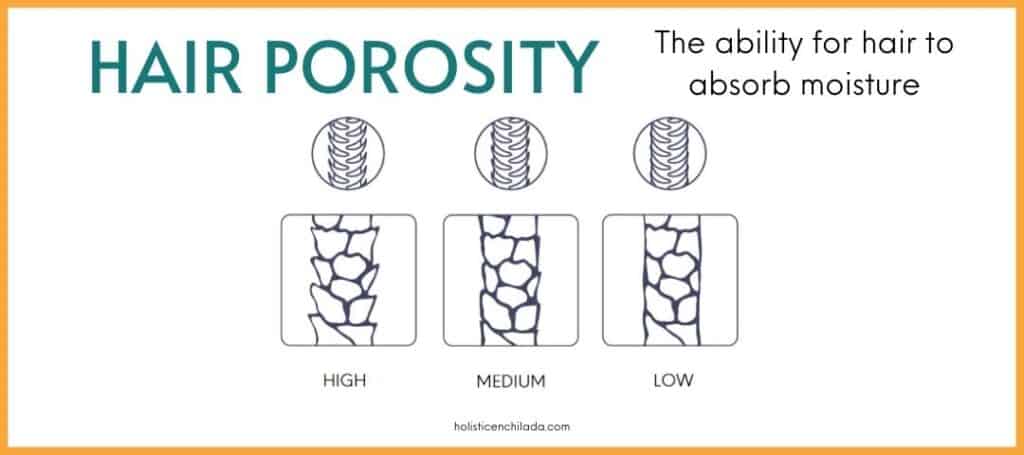
On the other hand, when the conditions are very dry with low humidity, the humectant will draw water out of the hair shaft, making it dry and brittle.
So when the humidity level is at the extreme ends of the range, it’s best to avoid using high amounts of humectants without using anti-humectants or humidity-resistant ingredients. If the dew point is above 50°F or below 35°F, you should opt for products with anti-humectants (emollients) and humidity-resistant ingredients (polyquats, silicones) to protect your hair and keep it looking great.
This is particularly important if you have curly or coily hair, as these hair types are often dry and easily damaged.
Common Humectants
Humectants in hair care products can be synthetic or natural. You may also see some biologically produced humectants, which sometimes have complex names but are still based on natural ingredients.

Natural Humectants
- Glycerin (including vegetable glycerin)
- Honey
- Lecithin
- Panthenol (Pro Vitamin B5)
Biological Origin Humectants
- Agave Nectar
- Glucose
- Fructose
- Glycogen
- Hyaluronic Acid
- Hydrolyzed Proteins
- Inositol
- Isoceteth-x
- Silicon Polyols
- Sodium PCA
- Sorbitol
- Steareth-x
- Sugars and Modified Sugars
- Xylitol
Synthetic humectants
- Propylene Glycol
- Ethylene/Diethylene Glycol
- PEG Compounds (For example, polyethylene glycol)
Synthetic humectants may cause irritation and contact dermatitis, so you should avoid these if you have sensitive skin.
Selecting the Right Humectants for Hair
With so many humectants available, you might be wondering which one is the best humectant for curly hair.
The strongest humectants are ones like glycerin, sodium lactate, or sodium PCA. These will attract the highest hydration levels, but that’s not always a good thing.
If the weather is very dry or humid, choosing one of the gentler options, like hydrolyzed silk protein or panthenol, would be better. And you might also want to use them alongside an anti-humectant to give your hair some added protection.
Look out for where the humectant appears in the list of ingredients as well. Around 80% of your hair care product is made up of the first five ingredients on the list, so if the humectant isn’t near the top, it probably won’t affect your locks as much.

Creating a balanced Routine
A balanced routine will ensure your locks are moisturized regularly so they stay strong, soft, and shiny. Your products should include humectants and anti-humectants to help keep it healthy.
Using humectants regularly will help enhance your hair’s shine, make it less frizzy and reduce breakage. It will also help replace lost nutrients from your hair and make it feel softer.
But if the humidity level is over 80% or under 40%, it is even more important to include anti-humectants to prevent your hair from absorbing too much water or becoming dry and brittle.
Pros and Cons of Humectants for Curly Hair
If you’re still unsure whether humectants are right for your curls, here’s a quick summary of the advantages and disadvantages.
Pros
- Humectants can help make your curls feel softer and bouncier
- They can improve your hair’s elasticity and make it less brittle
- They can also protect your hair from possible damage from the elements
Cons
- In high humidity conditions, humectants can make your hair frizzy and sticky
- In low humidity, they can leave your hair dry and brittle
- The damage caused may be permanent
FAQs
If you would like more info about humectants for hair, take a look at these frequently asked questions:
Can Humectants Harm Natural Hair?
If you have high-porosity natural hair, humectants may attract too much water when the humidity level is high. This can cause the hair shaft to become swollen and the cuticle to become distorted, which makes your hair big, frizzy, and lose its shape.
And if the humidity level is very low, they might actually draw water out of your hair shafts, causing dryness and breakage.
Can Humectants Cause Frizz?
High humidity is one of the main causes of frizz, which is when each strand has its own alignment and your curls look messy. Humectants can make this problem worse in high humidity because they can make your hair absorb moisture too quickly.
Anti-humectants like natural oils or butter stop your hair strands from absorbing water, helping prevent curly hair frizz.
Humectants for Hair – The Bottom Line
Now you know all about humectants for hair and why they’re so beneficial for natural hair
Humectants act like a magnet that draws moisture to your hair, while emollients or anti-humectants lock in moisture, which makes them essential for your hair when humidity is very high or low.
Combining these two ingredients will help you achieve the optimal moisture balance, giving you great hair that’s soft, shiny and smooth!
Sources
1 – https://www.medicalnewstoday.com/articles/humectant#what-are-they
2 – https://sciencenotes.org/adsorption-vs-absorption-differences-and-examples/
3 – https://chemistrytalk.org/water-polarity-why-polar/
4 – https://blog.weareprovital.com/what-is-the-most-effective-humectant-for-hair/
